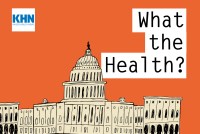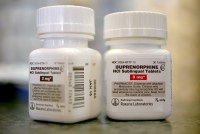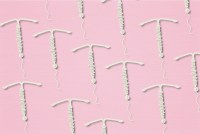Latest Morning Briefing Stories
How Low Can They Go? Rural Hospitals Weigh Keeping Obstetric Units When Births Decline
Many small hospitals have shuttered their labor and delivery units as births decline. For those who resist the trend, some studies suggest that hospitals with low deliveries are more likely to see complications for patients. Doctors and public health experts say there is no magic number to determine when it is best to close an obstetrics unit.
Readers and Tweeters Find Disadvantages in Medicare Advantage
KHN gives readers a chance to comment on a recent batch of stories.
KHN’s ‘What the Health?’: Why Health Care Is So Expensive, Chapter $22K
Congress is making slow progress toward completing its ambitious social spending bill, although its Thanksgiving deadline looks optimistic. Meanwhile, a new survey finds the average cost of an employer-provided family plan has risen to more than $22,000. That’s about the cost of a new Toyota Corolla. Alice Miranda Ollstein of Politico, Anna Edney of Bloomberg News and Rebecca Adams of CQ Roll Call join KHN’s Julie Rovner to discuss these issues and more. Also this week, Rovner interviews Rebecca Love, a nurse academic and entrepreneur, about the impending crisis in nursing.
Western Boom Cities See Spike in Harmful Ozone
Vehicle emissions, oil and gas drilling and climate change have combined to create more days with unhealthy levels of the colorless, odorless gas from Denver to Phoenix.
How One Health Center Is Leading Chicago on Kid Covid Shots
A health center with clinics on Chicago’s southwest side that serves mostly Hispanic patients has provided the most covid shots to kids in the city by being accessible, (literally) speaking the language of the community and setting up pop-up clinics at schools and parks. It provides a few lessons as the nation gears up to vaccinate 5- to 11-year-olds.
El auge de las ciudades del oeste eleva niveles de ozono nocivo
Aunque ha habido reducciones significativas, en algunas partes del país, especialmente en los valles montañosos densamente poblados del oeste, el gas inodoro e incoloro ha seguido siendo obstinadamente difícil de reducir a niveles seguros.
Centro comunitario hispano lidera la vacunación infantil contra covid en Chicago
Esperanza Health Centers ha liderado la vacunación contra covid en la población infantil y adolescente de Chicago, ayudando a grupos que han sido más vulnerables al coronavirus.
As Overdose Deaths Soar, DEA-Wary Pharmacies Shy From Dispensing Addiction Medication
A West Virginia pharmacy cleared a Drug Enforcement Administration investigation. But it shut down anyway, highlighting how the agency’s policies reduce the availability of buprenorphine, an important tool for recovery from opioid addiction.
‘Drinking Through a Lead Straw’ — $15B Approved to Fix Dangerous Water Pipes
The infrastructure bill passed Friday funnels $15 billion into lead pipe remediation. Water quality experts say the cost of getting rid of all lead pipes could ultimately cost $60 billion. Still, some health advocates say the new funding will be transformative in allowing communities such as Houston’s Fifth Ward to fix its pipes.
Texas Providers See Increased Interest in Birth Control Since Near-Total Abortion Ban
But providers do not expect contraception to blunt the law’s effects.












